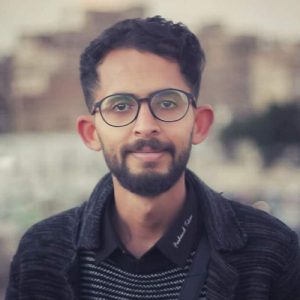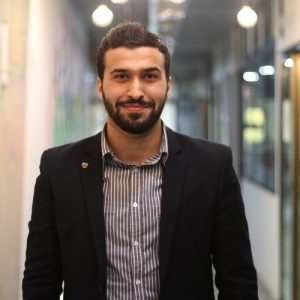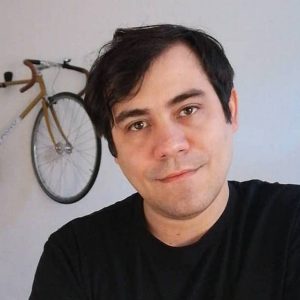2 Mar 2023 | News and features, Statements, Sweden, United Kingdom
In January 2023, Swedish business and finance publication Realtid confirmed that they had reached a settlement with businessman Svante Kumlin over a legal action Kumlin had taken as a result of articles published in late 2020. Under the terms of the settlement, while Kumlin will pay part of Realtid’s legal fees, Realtid is obliged to share a clarification and apology on its website on three of its articles about Kumlin and his company Eco Energy World (EEW).
The settlement comes more than two years after the legal action against Realtid and their journalists was initiated, and seven months after a judge ruled that the courts of England and Wales did not have jurisdiction over ten of the thirteen defamation claims EEW and Kumlin had initially brought.
Dozens of human rights and media freedom organisations had repeatedly expressed solidarity with Realtid due to the case having been deemed a strategic lawsuit against public participation (SLAPP) from the outset. SLAPPs seek to put pressure on public watchdogs by draining them of time, money, and energy in a bid to silence them.
“Overall, we welcome the fact that Realtid’s SLAPP has come to an end and that their articles will remain online in an unamended format,” the organisations said. “Nonetheless, Realtid and their journalists have paid dearly to defend their public interest reporting, not only financially, but in time and energy also. They will never be made whole.”
“We believe that, once again, this case emphasises the urgent need for concrete action to be taken, including the enactment of robust anti-SLAPP legislation in the UK. It is difficult to imagine a case like this getting this far if more robust protections were in place,” the organisations said. “We need to ensure that public watchdogs are empowered to carry out their work, which is so crucial to our democracy.”
Signed:
Index on Censorship
RSF Sweden
Justice for Journalists Foundation
ARTICLE 19
Blueprint for Free Speech
Society of Authors
National Union of Journalists
The Daphne Caruana Galizia Foundation
International Press Institute (IPI)
OBC Transeuropa (OBCT)
Global Witness
Free Press Unlimited (FPU)
Organized Crime and Corruption Reporting Project (OCCRP)
Media Law Resource Center
Xnet, Spain
Spotlight on Corruption
European Federation of Journalists (EFJ)
Association Justice and Environment, z.s.
Swedish Union of Journalists
PEN International
English PEN
25 Jan 2023 | Australia, Austria, Bahrain, Belarus, Belgium, Botswana, Burma, China, Cuba, Czech Republic, Denmark, Equatorial Guinea, Eritrea, Estonia, Ethiopia, Finland, Germany, Greece, Index Index, Ireland, Laos, Latvia, Lithuania, Moldova, Netherlands, News and features, Nicaragua, North Korea, Norway, Portugal, Romania, Russia, Saudi Arabia, South Africa, South Sudan, Swaziland, Switzerland, Syria, Turkmenistan, United Arab Emirates, United States, Yemen
A major new global ranking index tracking the state of free expression published today (Wednesday, 25 January) by Index on Censorship sees the UK ranked as only “partially open” in every key area measured.
In the overall rankings, the UK fell below countries including Australia, Israel, Costa Rica, Chile, Jamaica and Japan. European neighbours such as Austria, Belgium, France, Germany and Denmark also all rank higher than the UK.
The Index Index, developed by Index on Censorship and experts in machine learning and journalism at Liverpool John Moores University (LJMU), uses innovative machine learning techniques to map the free expression landscape across the globe, giving a country-by-country view of the state of free expression across academic, digital and media/press freedoms.
Key findings include:
-
The countries with the highest ranking (“open”) on the overall Index are clustered around western Europe and Australasia – Australia, Austria, Belgium, Costa Rica, Denmark, Estonia, Finland, Germany, Ireland, Latvia, Lithuania, Netherlands, New Zealand, Norway, Portugal, Sweden and Switzerland.
-
The UK and USA join countries such as Botswana, Czechia, Greece, Moldova, Panama, Romania, South Africa and Tunisia ranked as “partially open”.
-
The poorest performing countries across all metrics, ranked as “closed”, are Bahrain, Belarus, Burma/Myanmar, China, Cuba, Equatorial Guinea, Eritrea, Eswatini, Laos, Nicaragua, North Korea, Saudi Arabia, South Sudan, Syria, Turkmenistan, United Arab Emirates and Yemen.
-
Countries such as China, Russia, Saudi Arabia and United Arab Emirates performed poorly in the Index Index but are embedded in key international mechanisms including G20 and the UN Security Council.
Ruth Anderson, Index on Censorship CEO, said:
“The launch of the new Index Index is a landmark moment in how we track freedom of expression in key areas across the world. Index on Censorship and the team at Liverpool John Moores University have developed a rankings system that provides a unique insight into the freedom of expression landscape in every country for which data is available.
“The findings of the pilot project are illuminating, surprising and concerning in equal measure. The United Kingdom ranking may well raise some eyebrows, though is not entirely unexpected. Index on Censorship’s recent work on issues as diverse as Chinese Communist Party influence in the art world through to the chilling effect of the UK Government’s Online Safety Bill all point to backward steps for a country that has long viewed itself as a bastion of freedom of expression.
“On a global scale, the Index Index shines a light once again on those countries such as China, Russia, Saudi Arabia and United Arab Emirates with considerable influence on international bodies and mechanisms – but with barely any protections for freedom of expression across the digital, academic and media spheres.”
Nik Williams, Index on Censorship policy and campaigns officer, said:
“With global threats to free expression growing, developing an accurate country-by-country view of threats to academic, digital and media freedom is the first necessary step towards identifying what needs to change. With gaps in current data sets, it is hoped that future ‘Index Index’ rankings will have further country-level data that can be verified and shared with partners and policy-makers.
“As the ‘Index Index’ grows and develops beyond this pilot year, it will not only map threats to free expression but also where we need to focus our efforts to ensure that academics, artists, writers, journalists, campaigners and civil society do not suffer in silence.”
Steve Harrison, LJMU senior lecturer in journalism, said:
“Journalists need credible and authoritative sources of information to counter the glut of dis-information and downright untruths which we’re being bombarded with these days. The Index Index is one such source, and LJMU is proud to have played our part in developing it.
“We hope it becomes a useful tool for journalists investigating censorship, as well as a learning resource for students. Journalism has been defined as providing information someone, somewhere wants suppressed – the Index Index goes some way to living up to that definition.”
16 May 2022 | Awards, Cuba, Fellowship, Fellowship 2022, Palestine, Turkey, Yemen
 Yemeni artist Thiyazen Al-Alawi uses his craft to shed light on the destructive situation in Yemen through street art campaigns. He hopes to inform the public of what the war has done to his homeland.
Yemeni artist Thiyazen Al-Alawi uses his craft to shed light on the destructive situation in Yemen through street art campaigns. He hopes to inform the public of what the war has done to his homeland.
First inspired by the Arab Spring in 2011 as a teenager, Thiyazen turned to art as a form of self expression, launching his first street art campaign in 2012 as the war began. As conflict invaded every aspect of Yemeni life, he decided “every artwork is proof of their existence and continuity in life…something that gives people hope.” Thiyazen’s work aims to reflect the ugliest and truest forms of war, and its effect on real people.
Thiyazen’s latest project is a collaboration with British artist Luc Waring titled “Letters from Yemen”, a series of drawings and letters from conversations between the two about art, peace, war, and the horrors Thiyazen has witnessed himself. Inspired by a saying Thiyazen heard in his youth, the walls must do the talking when the newspapers are silent; the compiled writings and portraits raise awareness about the war in Yemen with a sensitivity and humanity only an artist and their medium can produce, eventually gaining traction and attention by the public. Due to the ongoing occupation by the Houthi militia, Thiyazen is risking his own safety as he continues to produce art.
Thiyazen continues his work on long-term projects with the Swiss Arts Council to spread awareness about the conditions in Yemen. He also contributes to the “Yemen Peace Forum” with the Sana’a Center for Strategic Studies, writing articles and studies like “Art and Youth in Yemen” in the Journal of Transitional Justice of the University of Oxford. “I feel that I must tell the truth no matter what,” Thiyazen explains,” I could sacrifice my life for the truth. And nothing will stop me.”
 Moe Moussa is a journalist, podcaster, poet, and the founder of the Gaza Poet Society. He uses various forums and mediums to amplify the voices of Palestinians.
Moe Moussa is a journalist, podcaster, poet, and the founder of the Gaza Poet Society. He uses various forums and mediums to amplify the voices of Palestinians.
Moe began his career as a translator for international journalists in 2014. He was soon inspired to speak about the situation from his own perspective. Studying English literature in college and growing up around poetry, it was only fitting that Moe decided to use his art to bring the individual lives of people in Gaza to the international audience.
Delving into Palestinian poetry led Moe to connect online with poets all over the world. He was interested in using his skills as a poet and a journalist to share the stories of individual lives with a global audience. After realising the lack of opportunities for poets to share their work in Arabic and English, he created a space to offer an opportunity for young people to speak and find their own voice in 2018 – the Gaza Poet Society. The organisation is supported solely by donations from international poets who believe in Moe’s cause. He is at constant risk of Hamas censorship and at the will of the Gazan government to approve of civilian movement out of the country.
Watching his family go days without water, power, and freedom of movement, Moe temporarily left Gaza for Istanbul in 2021 to continue his work more effectively. He was awarded the Times Richard Beeston Bursary in 2019 and has plans to complete his fellowship in London in 2022 following delays due to the pandemic. As the creator and host of the podcast “Gaza Guy”, he is focused on amplifying the voices of young Palestinians through poetry and fights for access to education in Gaza. Additionally, Moe has contributed to We Are Not Numbers, a site publishing stories of Palestiniain youth experiencing war. Moe recently released his debut poetry collection titled “Flamingo” and is working freelance to support the Gaza Poet Society from abroad.
 Fatoş İrwen is a Kurdish artist and teacher from Diyarbakır, Turkey working with a variety of materials and techniques.
Fatoş İrwen is a Kurdish artist and teacher from Diyarbakır, Turkey working with a variety of materials and techniques.
İrwen regularly uses her art to document her experiences as a Kurdish woman living in Turkey. The performance piece Füg [Fugue, 2012] documented her first experiences in police custody where she was physically and sexually abused. In 2016 İrwen was again taken into custody while boarding a domestic flight. She was charged with “resisting the police, opposition to the law against demonstrations and assemblies, propaganda for a terrorist organisation, belonging to a terrorist organisation” and sentenced to 3 years, 1 month and 15 days in prison. The charges related to a peaceful protest in 2013.
During her imprisonment, İrwen made 1,500 works of art using materials accessible to her, including hair, tea, food, shoe polish, old textbooks and newspapers, bed sheets, laundry pegs, scarves, and mould and cigarette ashes. Among other projects, the 2019 piece titled “Gülleler” (Cannonballs) features balls crafted from the hair of inmates participating in a hunger strike. “The hunger strike was like firing a shot to the outside world,” İrwen says. After being released, İrwen collected her art pieces in her first solo exhibition titled Exceptional times which was featured at Depo in Istanbul in 2021.
Discussing censorship by the Turkish authorities, İrwen says “this issue still continues to be the most painful issue of our lives and for which we pay a heavy price.” She is deeply committed to fighting for freedom of expression and artistic freedom.
Due to her challenges with Turkish authorities and her identity as a Kurdish woman, İrwen has found that galleries and art spaces are sometimes reluctant to feature her work. Still, she has found success, and her work has been exhibited in Iran, Germany, Austria, Hong Kong, Iceland, France, Mexico, Iran, Morocco, Sweden, and Turkey.
 Hamlet Lavastida has been described as a political activist by way of art. Lavastida uses his art to document human rights abuses in Cuba and to criticise Cuban authorities.
Hamlet Lavastida has been described as a political activist by way of art. Lavastida uses his art to document human rights abuses in Cuba and to criticise Cuban authorities.
Lavastida pushes boundaries of censorship in Cuba and highlights the distinctly Cuban spirit of cultural resistance. His work reconstructs old Cuban political and military propaganda.
Throughout his career, Lavastida has sought to use his art to fight for transparency and freedom of speech in order to fight against the Cuban government. He sees his art as a non-violent tool to fight against the current regime. Lavastida has been involved in various protest movements in Cuba, including the 27N movement which grew out of the protests held on 27 November 2020. The movement works to bring attention to the censorship of artistic expressions in Cuba.
In June 2021, Lavastida was arrested after returning from a residency at the Künstlerhaus Bethanien in Berlin. He was accused of ‘incitement to commit a crime’ because he suggested that other artists stamp images related to the San Isidro and 27N movements on local currency. Following his arrest, Amnesty International named him as a ‘prisoner of conscience’. Lavastida stayed in prison for 87 days. He was finally released without charges.
Lavastida has been living in exile in Europe since September 2021. He has been warned that he will be arrested immediately if he ever tries to return to Cuba. Lavastida is deeply concerned by the situation. While has experienced threats and censorship targeting his art throughout his career, he is now experiencing threats against him as an individual. He believes this is part of a greater trend of censorship in Cuba.
Lavastida plans to continue creating art and speaking up about the situation in Cuba.

 Yemeni artist Thiyazen Al-Alawi uses his craft to shed light on the destructive situation in Yemen through street art campaigns. He hopes to inform the public of what the war has done to his homeland.
Yemeni artist Thiyazen Al-Alawi uses his craft to shed light on the destructive situation in Yemen through street art campaigns. He hopes to inform the public of what the war has done to his homeland. Moe Moussa is a journalist, podcaster, poet, and the founder of the Gaza Poet Society. He uses various forums and mediums to amplify the voices of Palestinians.
Moe Moussa is a journalist, podcaster, poet, and the founder of the Gaza Poet Society. He uses various forums and mediums to amplify the voices of Palestinians. Fatoş İrwen is a Kurdish artist and teacher from Diyarbakır, Turkey working with a variety of materials and techniques.
Fatoş İrwen is a Kurdish artist and teacher from Diyarbakır, Turkey working with a variety of materials and techniques. Hamlet Lavastida has been described as a political activist by way of art. Lavastida uses his art to document human rights abuses in Cuba and to criticise Cuban authorities.
Hamlet Lavastida has been described as a political activist by way of art. Lavastida uses his art to document human rights abuses in Cuba and to criticise Cuban authorities.